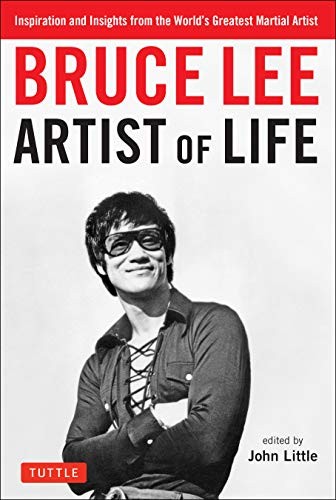Lee Jun-fan (Chinese: 李振藩; November 27, 1940 – July 20, 1973), commonly known as Bruce Lee (Chinese: 李小龍), was a Chinese American martial artist, actor, director, martial arts instructor and philosopher. He was the founder of Jeet Kune Do, a hybrid martial arts philosophy drawing from different combat disciplines that is often credited with paving the way for modern mixed martial arts (MMA). Lee is considered by commentators, critics, media, and other martial artists to be the most influential martial artist of all time and a pop culture icon of the 20th century, who bridged the gap between East and West. He is credited with helping to change the way Asians were presented in American films.The son of Cantonese opera star Lee Hoi-chuen, Lee was born in the Chinatown area of San Francisco, on November 27, 1940, to parents from Hong Kong, and was raised with his family in Kowloon, Hong Kong. He was introduced to the film industry by his father and appeared in several films as a child actor. His early martial arts experience included Wing Chun, tai chi, street fighting, and boxing, winning the Hong Kong schools boxing tournament. Lee moved to the United States at the …
Bruce Lee
Author details
- Born:
- Nov. 27, 1940
- Died:
- July 20, 1973
External links
Lee Jun-fan (Chinese: 李振藩; November 27, 1940 – July 20, 1973), commonly known as Bruce Lee (Chinese: 李小龍), was a Chinese American martial artist, actor, director, martial arts instructor and philosopher. He was the founder of Jeet Kune Do, a hybrid martial arts philosophy drawing from different combat disciplines that is often credited with paving the way for modern mixed martial arts (MMA). Lee is considered by commentators, critics, media, and other martial artists to be the most influential martial artist of all time and a pop culture icon of the 20th century, who bridged the gap between East and West. He is credited with helping to change the way Asians were presented in American films.The son of Cantonese opera star Lee Hoi-chuen, Lee was born in the Chinatown area of San Francisco, on November 27, 1940, to parents from Hong Kong, and was raised with his family in Kowloon, Hong Kong. He was introduced to the film industry by his father and appeared in several films as a child actor. His early martial arts experience included Wing Chun, tai chi, street fighting, and boxing, winning the Hong Kong schools boxing tournament. Lee moved to the United States at the age of 18 to receive his higher education at the University of Washington in Seattle; it was during this time that he began teaching martial arts, later drawing significant attention at the 1964 Long Beach International Karate Championships. In the 1970s, his Hong Kong and Hollywood-produced films elevated the traditional martial arts film to a new level of popularity and acclaim, sparking a surge of interest in the Chinese nation and Chinese martial arts in the West. The direction and tone of his films dramatically influenced and changed martial arts and martial arts films worldwide.He is noted for his roles in five feature-length martial arts films in the early 1970s: Lo Wei's The Big Boss (1971) and Fist of Fury (1972); Golden Harvest's Way of the Dragon (1972), directed and written by Lee; and Golden Harvest and Warner Brothers' Enter the Dragon (1973) and The Game of Death (1978), both directed by Robert Clouse. Lee became an iconic figure known throughout the world, particularly among the Chinese, based upon his portrayal of Chinese nationalism in his films, and among Asian Americans for defying stereotypes associated with the emasculated Asian male. Having initially learnt Wing Chun, tai chi, boxing, and street fighting, he combined them with other influences from various sources into the spirit of his personal martial arts philosophy, which he dubbed Jeet Kune Do (The Way of the Intercepting Fist). Lee had residences in Hong Kong and Seattle.Lee died on July 20, 1973, at the age of 32. There was no visible external injury; however, according to autopsy reports, Lee's brain had swollen considerably. The autopsy found Equagesic in his system. When the doctors announced Lee's death, it was officially ruled a "death by misadventure". Since his death, Lee has continued to be a prominent influence on modern combat sports, including judo, karate, mixed martial arts, and boxing, as well as modern popular culture, including film, television, comics, animation and video games. Time named Lee one of the 100 most important people of the 20th century.














